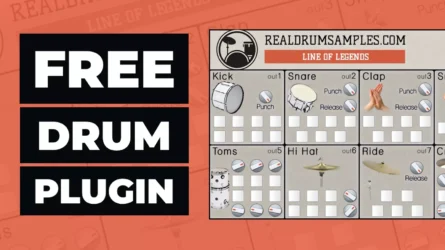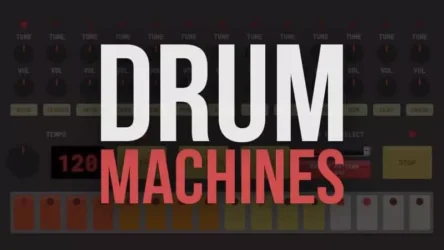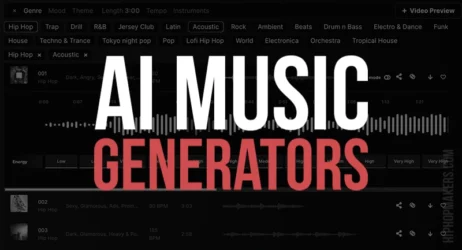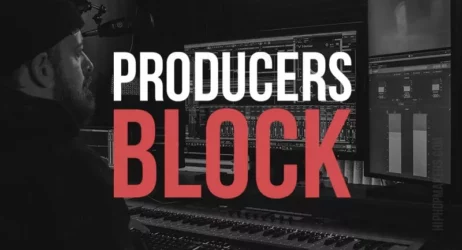We will answer what is a music producer’s salary, how they get paid, music royalties, publishing rights, and how much do music producers make.
- What Is A Music Producer’s Salary
- How Does A Music Producer Get Paid
- Do Music Producers Get Royalties
- How Much Publishing Do Producers Get
- Do Music Producers Get Paid Hourly
- Do You Need to Go to College
- How Much Do Music Producers Make
According to payscale.com, the average salary of a music producer is $51,080. As per salary.com, the average salary of a Music producer is $51,410. But the salary range falls between $45,250 and $58,080. The salary ranges can vary widely depending on factors such as education, additional skills, etc.
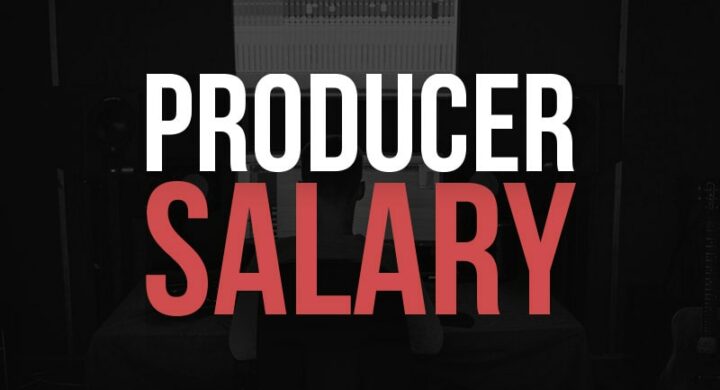
What Is A Music Producer’s Salary?
A Music Producer helps the artists in the studio to produce professional-sounding music. They work with the artists and the musicians to add the tone and feel to the recording. Music Producers on average earn less than conductors but more than some other music jobs.
| Career Type: | Median Salary: |
| Conductor | $50K |
| Composer | $50K |
| Sound Engineer | $31K |
| Music Producer | $34K |
| Music Promoter | $31K |
| Lyricist | $26K |
According to Career Explorer, the average hourly wage for a Music Producer in the United States is about $16.56 per hour. The salary can start from $12.64 per hour and go up to $36.15 per hour.
Related: How to Become a Music Producer
How Does A Music Producer Get Paid?
Advances and royalties are usually the two mainstream income sources of a Music Producer. But there can also be other ways.
Let’s discuss some of the possible ways in which a music producer gets paid:
Music Advances
A Music Advance is an advance paid to a musician or other artist by a record company in exchange for the right to use that person’s music.
Music Royalties
Royalties are a crucial part of any musician’s life. For musicians to make money from their songs, they need to either record and sell them or publish them and earn royalties.
There are two types of royalties that musicians typically earn: mechanical royalty and performance royalty. Mechanical royalties are a fixed percentage of the gross income made on selling or using a creative work such as a song. In contrast, performance royalties are usually only paid if the song is played in public, such as at concerts, radio stations, television shows, etc.
Leasing Beats
Leasing beats is a great option to generate passive income by selling a single beat to multiple music artists.
Publishing
Publishing deals are arrangements where the producer sells their rights to their future earnings from a track in exchange for an upfront fee or royalty percentage of sales. This usually means giving up some ownership of the track but ensures that they’ll be earning some sort of income from it.
Additional
Recording Fees, Songwriting, Sell Sample Packs, Sell Background Music.
Related: How to Make Money From Music
Do Music Producers Get Royalties?
Producers usually get a percentage of the artist’s royalties earned on an album. The percentages of this type are also called points (1 point = 1%). The royalty traditionally depends on how the artist gets paid.
As per thebalancecareers.com, the record royalty to the artist is around 15% to 16% of the sales price of the audio product. On the other hand, the record royalty for a music producer is generally between 3% and 4% of the record’s sales price, or 20% to 25% of the artist’s royalty.
If in a recording agreement it is said that an artist will receive a 15% royalty of the retail price of each record sold, then the artist will only get 12% (12 points).
The 3 points that have to be paid to the producer will be taken from the 15 royalty points of the artist and paid to the producer.
Nowadays, since the sales of albums have dropped and the different ways music makes money, the record labels are now focusing more on calculating the royalties based on what the record label will get when an album or single is streamed and not based on a sales price.
How Much Publishing Does A Producer Get?
A producer will usually get paid a flat fee for the work, and along with that, they will also get some royalties in the backend.
Considering the publishing royalties, the split between the composer and the producer is 50-50.
In the case of Hip Hop and R&B, the publishing is generally split between the music and the lyrics. Some music producers in Hip Hop and R&B can get as high as half of a record’s publishing.
It is also important to note that a producer may not necessarily be entitled to receive publishing royalties. For example, let’s say you are a producer and you just made the beat but did not contribute significantly to the melody and lyrics.
On top of that, let’s suppose that you are not an experienced producer and you don’t have a strong legal team. In that case, you might get shafted for believing or signing an agreement that forfeits the publishing.
But if you are a producer in a studio where you make songs with songwriters and artists. There are high chances that you’ll get the producer’s share of publishing and that of lyrics.
Publishing is one of the ways the producers can get compensated for their contribution.
A general rule of thumb is that even if a producer produced a record and just made the beat, they also deserve a portion of publishing.
Do Music Producers Get Paid Hourly?
Music producers can get paid in some of the following ways:
- An upfront fee
- Hourly rate
- A cut of the royalty
- By the number of master recordings completed
So music producers can get paid hourly, and it can also be on a per-song basis.
For example, if you are a well-known music producer in the music industry, you can charge more upfront and get backend royalties.
But music streaming is very popular nowadays, so there is not much money in album sales anymore.
So music producers will generally ask for upfront fees to work on the song, which is usually a flat rate.
Music producers who are on the rise may not be able to charge much upfront. But it also depends on the genre.
Do You Need to Go to College to Be a Music Producer?
There’s no standard education level needed to become a music producer. But still, it is encouraged to take the education.
Most colleges usually offer a four-year Bachelor’s Degree in Music Production.
Here are some of the advantages and disadvantages of going to a college for studying music production:
Advantages:
- Going to a Music Production School, most of your time will be dedicated to learning about your craft in a short period. So you can start faster.
- You can get access to industry professionals for your training and mentorship.
- You can get a complete overall understanding of music production.
- You will be surrounded by like-minded people from whom you can get inspiration.
Disadvantages:
- There’s no job guarantee even after you graduate.
- Sometimes the program can be outdated.
- Cost is one of the factors to be put into consideration. Most music schools can cost $20-80K.
- You can get the complete information available online for a lower price and maybe just for a fraction of the cost.
How Much Do Music Producers Make? ( Music Producers Salary )
Music producers make an average salary of $51,080, according to payscale.com. According to salary.com, a Music producer’s average salary is $51,418. This salary ranges between $45,254 and $58,089. Salary ranges can vary widely based on factors such as education, additional skills, etc.
In the music industry, the role of a music producer is pivotal in producing quality music. These producers work closely with artists during the production process, shaping the sound and feel of the recordings.
The average music producer’s salary is around $51,000, but this can range from $45,000 to $58,000 depending on factors such as production credits, education, and additional skills.
Music producers can earn money in various ways, including an upfront fee, an hourly rate, or a cut of the royalties. They can also sell beats or lease them to multiple artists for passive income.
Additionally, music producers typically get a percentage of an artist’s royalties from album sales, with a point system often used to calculate these earnings.
Experienced producers can negotiate better deals, sometimes even earning a 50-50 split on publishing royalties.
However, for budding musicians and producers, understanding the ins and outs of the music industry is crucial to avoid unfavorable deals and maximize their earning potential.
The shift in the industry towards streaming music has impacted the way royalties are calculated and has led many producers to charge upfront fees for their work, as album sales are not as lucrative as before.
Yet, through mechanical royalties, producers can still earn a portion of the income made from selling or using a song, which can add up to more money over time.
The music producer’s salary can also vary based on location. In major cities, where the music industry is more prominent, producers might be able to charge more for their services and connect with more potential clients, including other artists and producers.
In conclusion, a music producer’s salary is not just a base salary or an average hourly rate but a combination of different income sources, including royalties, upfront fees, and selling beats.
The annual income of a producer can differ greatly based on their experience level, the quality of their work, and their understanding of the industry norms and practices.
So, while the job of a music producer may seem glamorous, it involves a lot of hard work, skill, and knowledge of the industry.
Whether they’re mixing beats in a home studio or creating hits for top artists, music producers play a crucial role in the music we enjoy every day.
I hope you found this information on music producer salaries helpful.
If you have any thoughts on the salary of music producers, please share them in the comments.

